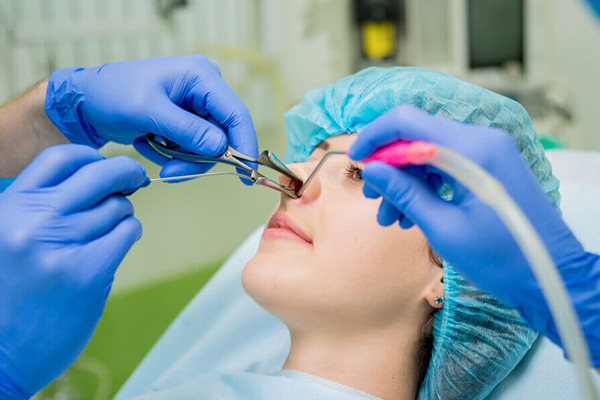
Sinus issues can affect your quality of life and general well-being. When non-surgical treatments fail to provide relief, sinus surgery may become an option. Before you make this decision, understand what the procedure entails, what you should expect, and how to prepare for it. This listicle will guide you through everything you need about sinus surgery in Singapore.
Understanding the Purpose of Sinus Surgery
Sinus surgery, also known as a sinus operation, is typically recommended when other treatments, such as medication or nasal sprays are not effective. The goal of the surgery is to improve the drainage of the sinuses, alleviate symptoms, and prevent future infections. Chronic sinusitis, nasal polyps, and structural abnormalities are some of the conditions that may necessitate sinus surgery. Consulting a nose specialist in Singapore will help you determine whether this procedure is for your condition.
Consultation with a Sinus Specialist
Before considering sinus surgery, you must have a detailed consultation with a sinus specialist in Singapore. During this consultation, the specialist will perform a thorough examination, which may include imaging studies like a CT scan, to assess the extent of your sinus issues. Based on these findings, the specialist will discuss the potential benefits and risks of the surgery, as well as alternative treatments. This consultation is a critical step in ensuring sinus surgery is the right choice for you.
Types of Sinus Surgery Available in Singapore
There are several types of sinus surgery available, depending on the nature and severity of your sinus problems. Functional Endoscopic Sinus Surgery (FESS) is the most commonly performed procedure, where a thin, flexible tube with a light and camera (endoscope) is used to remove blockages in the sinuses. Other types of surgery include Balloon Sinuplasty, where a small balloon is inserted and inflated to open up the sinus passages, and Septoplasty, which corrects a deviated septum that contributes to sinus problems. Discussing these options with your sinus specialist in Singapore will help you understand which procedure is most appropriate for your condition.

Preparation Before the Surgery
Preparing for sinus surgery is crucial for a successful outcome. Your sinus specialist in Singapore will provide specific instructions which may include stopping certain medications, avoiding smoking, and ensuring that you are in good general health. You may also be advised to fast for a certain period before the operation. It’s essential to follow these instructions closely to minimise the risk of complications during and after the surgery.
What to Expect During the Procedure
Sinus surgery is typically performed under general anaesthesia, although local anaesthesia may be used in some cases. The procedure usually lasts between one to three hours, depending on the complexity of the surgery. During the operation, the surgeon will use specialised instruments to remove obstructions, correct structural issues, and improve the drainage of your sinuses. Modern sinus surgeries in Singapore are often minimally invasive, resulting in less discomfort and a quicker recovery.
Post-Operative Care and Recovery
Recovery from sinus surgery generally takes one to two weeks, it may vary depending on the type of surgery performed and your overall health. After the operation, you may experience some swelling, bruising, and discomfort, but these symptoms usually subside within a few days. Your sinus specialist will provide detailed post-operative care instructions, which may include using saline nasal sprays, avoiding strenuous activities, and keeping your head elevated while resting. It’s important to attend all follow-up appointments to ensure that your sinuses are healing properly.
Possible Risks and Complications
As with any surgical procedure, sinus surgery carries certain risks and potential complications. These may include bleeding, infection, scarring, and in rare cases, damage to the eyes or the brain. However, choosing an experienced sinus specialist in Singapore can significantly reduce the likelihood of complications. It’s essential to discuss these risks with your specialist before the surgery and to be aware of any warning signs during your recovery.
Long-Term Outcomes and Benefits
For many patients, sinus surgery offers significant and lasting relief from chronic sinus issues. Improved sinus drainage can reduce the frequency and severity of infections, alleviate symptoms such as headaches and nasal congestion, and enhance overall quality of life. While sinus problems can recur, following your specialist’s advice on post-operative care and ongoing sinus treatment in Singapore can help maintain the benefits of the surgery in the long term.
The Importance of Choosing the Right Specialist
Selecting the right sinus specialist is one of the most important decisions regarding your surgery. Look for a specialist who has extensive experience in performing sinus surgery in Singapore and who takes the time to explain the procedure, answer your questions, and address your concerns. A skilled and experienced specialist will be instrumental in achieving the best possible outcome from your sinus surgery.
Considering Alternatives to Surgery
While sinus surgery can be highly effective, it’s not always the first line of treatment. In some cases, alternative treatments such as medication, nasal irrigation, or lifestyle changes may be sufficient to manage your symptoms. Before deciding on surgery, it’s worth exploring these alternatives with your sinus specialist in Singapore to ensure you make the best choice for your health.
For more information, contact Aglow ENT Centre today.
